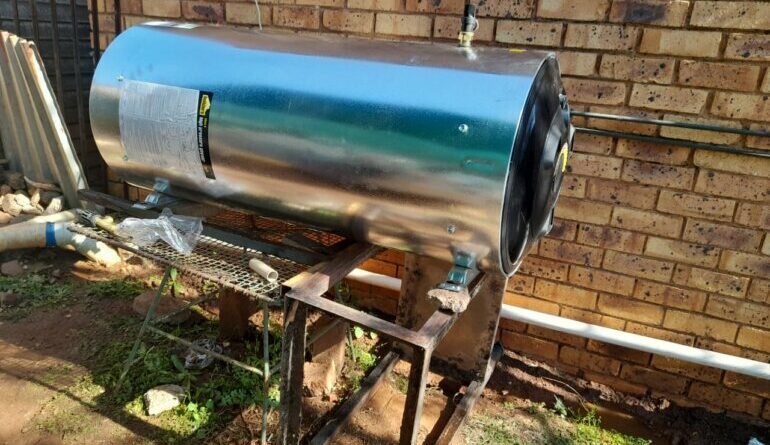Get your geyser in gear before Winter
We all have at least one of these in common, but even so, how many of us really know the current state of our geyser at home, or even at work? An unexpected geyser burst could take your finances down with it, unless you are prepared.
As winter quickly approaches, there couldn’t be a worse time to risk having no hot water, let alone ignore the potential outpouring of funds that could be needed to fix a bad geyser situation. As hidden as your geyser may be in your roof, or tucked away in a cupboard, certain terms and conditions needn’t be far from sight to stay on the right side of your short-term insurance. But without adequate cover, you could be at serious risk.
Get clear on your cover
Your short-term insurance policy is there to help, but only if you manage it correctly. Don’t just assume that simply having cover is enough. It’s a must to work within the rules around maintaining your geyser to keep things warm and adequately insured throughout winter – and always.
Don’t bank on bursts
Some temperature problems and geyser bursts are the only issues likely to be covered by your insurer, but if your geyser is still under warranty, the geyser manufacturer will become involved. There can be delays, so working with an insurer who has a 24-hour assist service can be the best bet you’ll make. If a claim is repudiated, the cost of replacing a geyser yourself could be dire.
Don’t rely on your bond insurance
You might think if you’re paying off your property, everything – including your geyser- will be automatically covered by the built-in insurance that comes with having a bonded asset. This may be true for some, but it might only factor in how much you still owe on the property and can result in even more steps needed by you to progress an insurance claim.
This is among the reasons why working with an insurance adviser can really help, as they will follow up as needed on your behalf. Advisers can also play an important role in directing clients to insurer-approved service providers. This is particularly useful as it can be difficult to get a recommendation for a trusted tradesman.
How to spot issues before they happen
While a geyser bursting isn’t necessarily as violent or destructive as it sounds and you can often continue using it after a burst, it is better to avoid this and replace yours ASAP, especially to stay consistently covered by insurance.
If you notice that more than one pipe is dripping from your geyser outlet (as the overflow pipe is likely to drip normally), you need to notify your adviser or insurer immediately. This could be a sign that a burst has happened, but only a qualified plumber – as registered on the Plumbing Industry Registration Board – will be able to assist you, particularly to stay covered by insurance.
Professional plumbing is the only option
There are a number of SANS codes that apply, and a Certificate of Compliance is required on the installation of a geyser. Essentials like these are only known by a qualified plumber, who will issue the certificate to you, having acted in accordance with the law. If you’re in an older property, your geyser’s drip tray might not be up to scratch, so get a qualified plumber out to check that too. Also note issues in water temperature, colour or pressure when using hot water outlets around your property to stay ahead of any maintenance issues early.
Go beyond the geyser
Should water leaks become a reality, they can lead to awful results beyond expectations. Imagine if a ceiling above a cupboard becomes damaged, for example. Risks like these make it a necessity to include the full picture in your policy. Account for what it would cost to replace the structure itself to everything inside your property. Yes, everything.
That replacement cost – in today’s value – needs to be considered. Your building sum insured should also consider costs of demolition, alternative housing and delays in rebuilding. Being prepared is so important and an adviser can help guide you through the entire process.
Keep the heat on
Get ahead of unnecessary regret and deal with any issues before they happen. This removes risks of unpleasant and unexpected problems – big or small. Start by checking your geyser outlet this weekend and touching base with your adviser. You never know what is coming next but being prepared today, will mean one less worry tomorrow. Ignorance is most certainly not bliss when it comes to your geyser.
[ Article by Bertus Visser, CE of Distribution at PSG Insure]
Also view:
Water Damage and Claims from Home and Household Insurance
Winter is Coming!! Advice on Safe Driving in Winter / Driving on Snow and Ice https://t.co/eXIKwvX8ag #ArriveAlive @SnowReportSA @ReenvalSA @Wea pic.twitter.com/nRw0gsHkSp
– Arrive Alive (@_ArriveAlive) June 7, 2019




